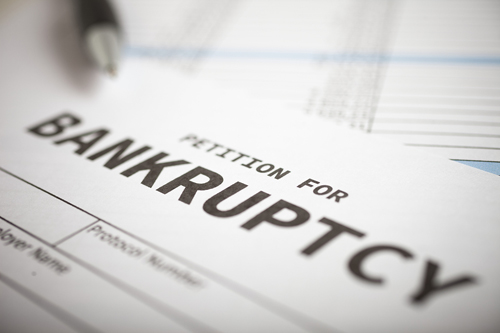Will Bankruptcy Delay Your Ability to Retire?
The thought of financial difficulties delaying your ability to retire can seem like a nightmare. By filing for bankruptcy, you can stick to your retirement timeline and establish financial security relatively quickly
Often, retirement accounts are protected during bankruptcy, whether through state or federal exemptions. This means that debtors can typically file for Chapter 7 bankruptcy without risking the liquidation of their retirement assets. Chapter 13 has little effect on a debtor’s retirement unless they cannot follow a repayment plan. That said, with the proper plan in place, filing for bankruptcy should not impact one’s ability to retire. Taking this action can help you retire when you initially planned to by addressing your debt in a timely fashion before you reach retirement age.
Reach out to our bankruptcy lawyers in Pennsylvania and New Jersey to schedule a free case evaluation by calling Young, Marr, Mallis & Associates today at (215) 701-6519 or (609) 755-3115.
Will Filing for Bankruptcy Hurt My Ability to Retire?
The fear of losing all of the money you’ve saved in your retirement account might dissuade you from filing for bankruptcy. In reality, filing for bankruptcy can help debtors protect their ability to retire at the age they planned by providing financial relief and a path to repay creditors. While pensions and retirement plans are typically protected during this process, debtors may only be able to exempt these funds up to a certain amount, depending on the type of bankruptcy they file for and which exemptions they choose.
Chapter 7
Chapter 7 bankruptcy is commonly referred to as liquidation bankruptcy. Debtors who file for Chapter 7 agree to liquidate certain assets to satisfy their debts. Depending on the amount of debt they owe and their available assets, debtors might be concerned that they cannot protect assets they’re depending on to fund their future, like their retirement accounts. Fortunately, our Trevose, PA bankruptcy lawyers can explain the various exemptions available to you as a debtor, which may allow you to protect your retirement account from liquidation during Chapter 7.
Notably, a federal exemption for retirement plans allows most debtors to exempt retirement accounts in their entirety. Individual states typically provide exemptions for retirement plans under Chapter 7 bankruptcy as well. For example, Pennsylvania offers an exemption of up to $15,000 per year you are in bankruptcy, provided you meet the necessary criteria. New Jersey goes even further and has no exemption limitations for retirement accounts, meaning you can exempt the entire amount you have saved preceding bankruptcy.
Debtors in both Pennsylvania and New Jersey can elect either state or federal Chapter 7 exemptions. This means that you can make the best decision and claim exemptions that will secure your retirement as you need based on your case, not on state exemption limitations alone.
Chapter 13
There are no exemptions for retirement plans for Chapter 13 bankruptcy because this type of bankruptcy does not require the liquidation of assets. This means that your retirement should be virtually unaffected when you file for Chapter 13. However, it is important to note that Chapter 13 requires debtors to follow a repayment plan. Depending on your income, you might have difficulty meeting scheduled payments and consider putting funds from your retirement account toward payments.
Making withdrawals from your retirement account before you reach a certain age might make withdrawals subjected to a 10%. This might mean debtors have to withdraw more money than their repayment plan requires to make payments. To avoid this, our Philadelphia bankruptcy lawyers can restructure your repayment plan if necessary so that you do not have to rely on funds from your retirement account to pay back creditors. It is typically unwise to use funds dedicated to your retirement to satisfy the requirements of your Chapter 13 if preventable.
Although Chapter 13 bankruptcy does not require liquidation of assets, debtors shouldn’t assume that their retirement accounts are safe. Instead, debtors should take the necessary steps to ensure they do not have to resort to depleting their retirement accounts to pay back creditors.
Will I Have to Retire Later in Life if I File for Bankruptcy?
When you reach retirement age, your debts don’t disappear. You will still need to address them and, if you do so during your retirement, may have little disposable income to do so. While filing for bankruptcy can help you retire according to your existing timeline, delaying dealing with your debt might disrupt your retirement altogether.
If you are nearing retirement age and are struggling with debt, filing for bankruptcy can help alleviate your financial difficulties. By filing for bankruptcy, you can repay creditors through liquidation or a repayment plan. In doing so, you can protect properly your retirement accounts and other assets from creditors who want payment.
Filing for bankruptcy at the right time should not delay a debtor’s ability to retire. Depending on the type of bankruptcy you file for, the entire process might be over in months or years. If you are nearing retirement age and choose to file for Chapter 13, our attorneys can structure a repayment plan that enables you to pay off debts in as little as three years. This can help you ensure that you are free from debt by the time you are ready to retire.
If you are already retired and are facing bankruptcy, you can still address your debt without impacting your retirement account by claiming the proper exemptions. The longer you leave debts unpaid, the worse your financial situation might get, and dealing with financial issues well into your retirement might cause you unnecessary troubles.
Ask Our Attorneys About How Bankruptcy Impacts Retirement
Call Young, Marr, Mallis & Associates to schedule a free case review with our Bucks County, PA bankruptcy lawyers at (215) 701-6519 or (609) 755-3115.






























